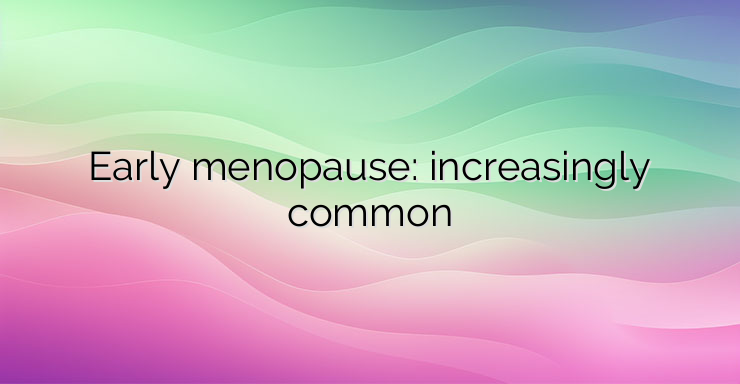The etymology of the word “climacterium” from the English language is “climax”, after which a gradual decline begins. It is believed that this period of a woman’s life is characterized by inability to give birth, predisposition to diseases, aging of the body, less attention from the opposite sex, and others. In the Chinese language, menopause is called “gan nien qi”, which translates as “a period of rebirth, of a new beginning”. In fact, indeed, during this period, the personal qualities of a woman are manifested in their full force. The term “early menopause” is used for cases in which it occurs before the age of 40. Menopause marks the end of women’s reproductive capacity. This is a natural occurrence and usually occurs between the ages of 45 and 55. Why can this condition occur earlier? It can be a consequence of other medical conditions such as prematurely depleted ovarian reserve, autoimmune diseases, chromosomal abnormalities, and infections such as tuberculosis and mumps. Other causes can be: stress, smoking, polluted environment, lack of movement, insufficient sleep, genetic predisposition, use of processed foods – all these disturb the hormonal balance. Strict diets and constant fluctuations in weight are also considered as the cause. Women who are too thin often have a shortage of estrogens, because these hormones are stored in subcutaneous fat. NEWS_MORE_BOX Obesity is a risk factor for the development of polycystic ovary syndrome – one of the main reasons for entering early menopause. However, going on a strict diet is not a solution to the problem, because the lack of nutrients first disrupts the ovarian function. In this way, the organism saves resources, since the reproductive function is not vitally important to the organism. The changes that occur during menopause contribute to the development of several symptoms: 1. Infertility – the end of a woman’s reproductive life comes and it is no longer possible to conceive a child. 2. Irregular menstruation is one of the most common symptoms of early menopause. The cycle can be heavier or lighter, and the intervals between two periods can become both shorter and longer until it completely disappears. 3. Vaginal changes. Vaginal dryness is also among the symptoms. The amount of estrogen in the body decreases and this makes the vagina thinner and less elastic. Sex can be painful. Still, there are various ways to avoid vaginal dryness and improve your sex life. 4. Hot flashes As the name suggests, these are sensations of heat that occur spontaneously and are usually most intense in the chest, neck and face area. The frequency of hot flashes can vary from several times a week to multiple times every day. There are various medications that can help with hot flashes. 5. Headaches and emotional problems Headaches are common among women who experience early menopause.They may also experience emotional symptoms such as anxiety, irritability, low self-esteem, depression and clouding of judgment.


Leave a Reply